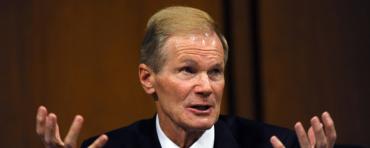
The Florida College of Emergency Physicians (FCEP) and its national counterparts today urged state and national policymakers to investigate the reimbursement practices of insurance companies, especially when patients go out of network for emergency medical care.
“We are urging Sen. Bill Nelson to investigate fully what is happening in his own state before calling for an inquiry into ‘surprise bills’ by emergency physicians,” said Jay Falk, MD, president of FCEP. “Our report shows that less than 4 percent of privately insured patients in Florida actually received balance bills ('surprise' bills' more formal name). We are calling for an examination of what insurers are offering their patients under high-deductible plans."
Less than 4 percent is not what U.S. Sen. Bill Nelson, D-Florida, says.
Nelson penned a letter Dec. 1 to the Federal Trade Commission, which prohibits "unfair or deceptive acts of practices in or affecting commerce," and urged the FTC to investigate the issue to ensure consumers are protected against surprise out-of-network bills.
Nelson referenced a case in Palm Harbor, in which a recent trip to an Emergency Room cost a patient more than $1,600, even though the visit was set-up by his primary care doctor and was in his insurance network.
The problem?
A sub-contracted doctor the patient briefly spoke with at Mease Countryside Hospital was apparently "out-of-network."
The New England Journal of Medicine claims 1 in 5 ER patients experience "surprise" hospital bills. The average "surprise" charge sets patients back an average $622, according to the report.
Writes Nelson in his letter, "The Commission should consider whether these 'out-of-network' charges should be banned altogether in cases of emergency treatment when a consumer has no other viable choice for treatment options."
Falk said many insurers pay a percentage of what they call "usual and customary allowables," which is typically well below actual charges, or usual and customary charges listed by Fair Health™, a national independent database of insurance claims. They have to be held accountable under legislation passed and signed into law last April by Gov. Rick Scott addressing "surprise bills." The fair payment provisions of the law must be enforced, Falk said.
"Not everybody is really able to think about everything during an emergency circumstance, and if they're lucky enough to get home, the last thing they need is a large massive surprise bill," says former Rep. Mark Pafford of West Palm Beach, who was the House Democratic leader when the Legislature passed protections against "surprise" hospital bills for consumers in Florida. Pafford is CEO of Florida CHAIN, a health care advocacy group.
The new law is supposed to provide a "resolution process" for consumers like the aggrieved Palm Harbor patient, but so far, the only resolution he was told is available to him is to pay.
FCEP conducted an analysis of billing data provided by Martin Gottlieb & Associates, a medical billing company. Of all Floridians, about 26 percent had private insurance (the rest were either uninsured or had Medicare or Medicaid). Of privately insured emergency patients, 88 percent were treated by in-network emergency physicians. Among the 12 percent of patients who were treated by emergency physicians who were out of their insurer’s network, the average emergency physician out-of-network charge was $679. The average insurer’s payment was $307 and the average patient payment was just $49.
“More national data are needed, but it’s reasonable to say the Florida data, which represent 10 percent of all Florida emergency department visits, could be extrapolated to other states as well as nationally,” said American College of Emergency Physicians' president Rebecca Parker, MD. “Recent focus by the media on a select group of theoretical balance bills from emergency physicians severely distorts what is really happening and distracts policymakers from what is in the best interests of patients and the health care system. The few balance bills that exist in Florida result from unwillingness by insurers to contract for fair and reasonable payment to medical providers, such as emergency physicians.”
The Fair Health claims database was developed after United Healthcare was successfully sued by the State of New York for fraudulently calculating and significantly underpaying doctors for out-of-network medical services (using Ingenix database). The formula they used forced patients to overpay up to 30 percent for out-of-network doctors. Four out of five big insurers have been sued for illegally manipulating what is deemed “usual and customary” medical charges.
“The Florida Legislature agreed a “surprise bill” should not occur when care is provided in a scenario where a patient does not have a choice of providers, and clearly defined what should be paid for out-of-network care, both for HMO and PPO patients,” said Falk. “With payment now stipulated at the provider’s usual and customary charge, insurers will be paying their fair share and shifting costs less to patients. Prior to the law change, insurers were underpaying for care, which was unfair to both patients and physicians. Florida’s new law, if enforced, will prevent this practice.”
Nelson's letter alone cannot compel the Federal Trade Commission to look into the issue, says The New York Times, but the commission often honors the requests of the Commerce Committee and can undertake investigations at its own behest.
“ACEP is committed to getting patients out of the middle and proposing solutions to escalating health care costs,” said Parker. “But bullying tactics by the insurance industry and their surrogates are creating a lot of confusion for our patients who want what emergency physicians are advocating for: fair coverage for emergency care.”
Reach Nancy Smith at nsmith@sunshinestatenews.com or at 228-282-2423. Twitter: @NancyLBSmith
READ MORE FROM SUNSHINE STATE NEWS
Greg Steube Fires Up Open Carry Bill for 2017 Session
Ron DeSantis Teams Up With Ted Cruz Again, This Time on Term Limits


